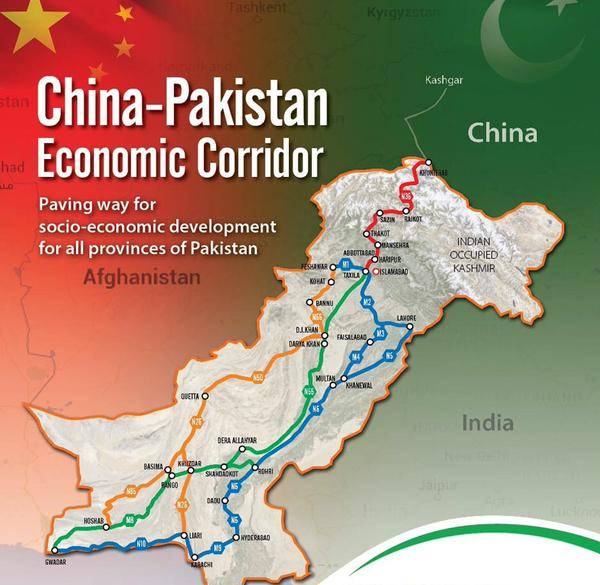There was a ruckus; every one jumped on the bandwagon. Political parties claiming to be defenders of small provinces tied their chariots to the wagon and joined in the symphony of a positive federation. The ruling party in Khyber Pakhtunkhwa came to its senses albeit very late and for that matter for a very short time. The leader of one ruling party in Balochistan took on a mysterious silence while other leaders of his party took to caring for his province rights. A few political statements and a few stunts of activism here and there and the political parties got tired. The ruling party at federal government, PML (N), was however tenacious. It started by outright denying any wrongdoing. Then they caved in to somewhat mounting pressure and admitted that there are two routes, but again lashed at the critics for blaming them of playing into hands of anti-state actors. Then came one trick after another from their bag – vilifying the critics, blaming them, mocking them, unleashing the cronies in media, sugar-coated threats and ploys meant to deceive.
What helped in sweeping the issue under the carpet? It should not be forgotten that the attention this issue received was the result of legitimate uproar created on social media by civil society activists and on-ground activism of intelligentsia of the smaller provinces. Political parties were late and were in only for political mileage or were dragged into it for the sake of face-saving. But alas! Social media activism has its lifespan and that’s not very suitable for political movements, which require continuous vigilance, unnerving perseverance and intellectual capacity for debate and opening up new options and avenues for exploration for the sake of solving issues that have real-life consequences on the lives of tens of millions of people. Combine the peculiar nature of social media activism with the warning from the Chief. Army Chief in a strong-worded statement labelled the people demanding the due constitutional share in development projects for their provinces as detractors and enemies of the state followed by his unflinching resolve to handle them the way which is apt for such enemies of Pakistan.
Job done. Political parties had to cave in. Social media and civil society organizations don’t count for much and don’t stand a chance given the dual mammoth challenges of fighting the tricks of jaguars of ruling PML (N) and of a dissenting nod of the savior of the nation. Political parties got what they were in it for – face saved. They can now helplessly complain that they tried but the forces on the other side were too strong and they are victims and will continue to fight for rights of smaller provinces (but for some other issue, some other time.) This can dismantle the trends on social media other than a sporting event, a girl going crazy, someone eating abnormally and other silly but entertaining stuff. Political activism for a cause and persistence in repeating the same old thing is boring and who has got energy and willpower to listen to the same old stuff and the tenacity to comment on and share the same story every other day? That’s life on the go, social media life demands new goals, new targets each day. Successful completion of the previous ones is not to be pondered upon.
But what I have said about social media is perhaps also true for our political parties and our focus and dedication to issues that affect us for generations. Focus on political issues changes with the coverage in media. The electronic and social media drive their agenda. The discipline and will to fight a prolonged battle for rights of common man is absent. Political parties in Pakistan are not interested in taking issues at grassroots level and mount the required pressure on government to ensure safeguarding of rights of the people.
Western route of CPEC has also fallen victim to this very psyche and circle of political activism in Pakistan. In the given situation of Pakistan where civil society organizations are weak, only political parties have the capacity to take on such national issues and compel the government to accommodate dissenting voices. But the government was able to silence the opposition on piecemeal projects in name of western route, the detail of which I have presented previously. Those having vested interest, or those who were in the campaign for face-saving, may have got some consolation from hollow promises of Ahsan Iqbal, but thinking minds in small provinces are looking at these developments with apprehension. A few civil society organizations are firm in their stand and are not caving in despite lack of interest from political parties in opposition and from the ruling parties in Khyber Pakhtunkhwa and Balochistan.
Looking at the surface it may seem that people of the smaller provinces have forgotten about their due right in CPEC, but winds may disappear for sometime only to reappear with more power. The state of federation in Pakistan is not a balanced one, and such blatant disregard for rights and development of small provinces will only add to inter-provincial distrust and further weaken the federation. If western route of CPEC is part of history, its repercussions are part of future. And a future built on grievances and deprivations doesn’t bode well for the country. It’s still time to address grievances of smaller provinces and consider them equal parts of the country and develop them at par with the mainstream.






